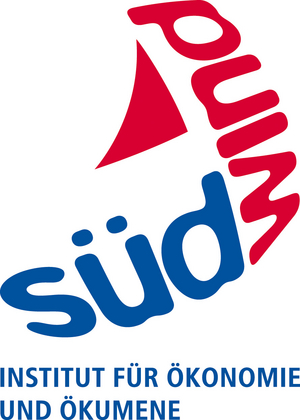Central America: Crisis, reactivation and the role of remittances / Centroamérica: crisis, reactivación y el papel de las remesas

Veranstaltungsart
Panel
Ort / Datum
Bonn, 31.10.2019
German Development Institute / Deutsches Institut für Entwicklungspolitik (DIE), Südwind - Institut für Ökonomie und Ökumene
Central America is currently witnessing a series of partly interwoven crises. Modest economic growth rates lead to low growth in income levels. Labor markets do not provide attractive job opportunities for women and men, leading to high youth unemployment rates.These challenges clearly go beyond the economic and social sphere and lead to governance problems threatening democracy and political stability. This "syndrome" of challenges affects all countries in the region, with different nuances. The Northern Triangle (Guatemala, El Salvador, Honduras) is especially affected by emigration towards the USA, a very significant permanent or temporary migration can be observed between Nicaragua and Costa Rica. Migration flows constitute both challenges along the routes and some opportunities, basically through remittances by the migrates to families back home.
On 31 October three experts were in Bonn and discussed with us the current situation of the region and possible pathways to an economic reactivation and political stability.
- Jessica Emylsa Vides Ramirez (Alice Salomon Hochschule Berlin) (Guatemala)
- Hugo Noe Pino, UNITEC University, former President of the Honduran Central Bank and embassador to the United Nations (Honduras, Guatemala)
- Jose Luis Espinoza Delgado, University of Göttingen, researcher at the Chair of Development Economics, guest researcher of DIE Research Programme "Transformation of Economic and Social Systems" (Nicaragua)
- Fabián David Quirós Álvarez, General Director, Finance Minsitry of Costa Rica (Costa Rica)
Moderators:
- Pedro Morazán, Südwind
- <link en andreas-stamm>Andreas Stamm, DIE
Panelist presented in Spanish, we provided translation of questions and contributions from English to Spanish.
---
América Central está siendo testigo de una serie de crisis parcialmente entrelazadas. Las modestas tasas de crecimiento económico conducen a un bajo crecimiento en los niveles de ingresos. Los mercados laborales no brindan oportunidades de trabajo atractivas para mujeres y hombres, lo que genera altas tasas de desempleo juvenil. Estos desafíos claramente van más allá de la esfera económica y social y conducen a problemas de gobernanza que amenazan la democracia y la estabilidad política. Este "síndrome" de desafíos afecta a todos los países de la región, con diferentes matices. El Triángulo del Norte (Guatemala, El Salvador, Honduras) se ve especialmente afectado por la emigración hacia los EE. UU. Se puede observar una migración permanente o temporal muy significativa entre Nicaragua y Costa Rica. Los flujos migratorios constituyen tanto desafíos a lo largo de las rutas como algunas oportunidades, básicamente a través de las remesas de los emigrados a las familias en sus comunidades locales.
El 31 de octubre, tres expertos estuvieron en Bonn y debatieron con nosotros la situación actual de la región y las posibles vías para una reactivación económica y estabilidad política.
- Jessica Emylsa Vides Ramirez (Alice Salomon Hochschule Berlin) (Guatemala)
- Hugo Noe Pino, Universidad UNITEC, ex presidente del Banco Central de Honduras y ex embajador ante las Naciones Unidas (Honduras, Guatemala)
- José Luis Espinoza Delgado, Universidad de Gotinga, investigador de la Cátedra de Economía del Desarrollo, investigador invitado del Programa "Transformation of Economic and Social Systems" del DIE (Nicaragua)
- Fabián David Quirós Álvarez, Director General, Ministerio de Hacienda de Costa Rica (Costa Rica)
Moderadores:
- Pedro Morazán, Südwind
- Andreas Stamm, DIE
Los panelistas presentaron en español, proporcionamos la traducción de preguntas y contribuciones de inglés a español.
Hinweis
Während unserer Veranstaltungen werden z.T. Foto- und/oder Filmaufnahmen gemacht, die für Zwecke der Veranstaltungsberichterstattung und allgemeinen Öffentlichkeitsarbeit in verschiedenen Medien veröffentlicht werden. Sie haben jederzeit das Recht, die Foto- oder Videograf*innen darauf hinzuweisen, dass Sie nicht aufgenommen werden möchten. / During our events photos and/or videos may be taken which may be published in various media for the purposes of documentation and PR activities. You have the right at any time to point out to the photographer or videographer that you do not want to be photographed or filmed.
Veranstaltungsinformation
Datum / Uhrzeit31.10.2019 / 17:00 - 19:00
OrtGerman Development Institute / Deutsches Institut für Entwicklungspolitik (DIE)
Tulpenfeld 6
53113 Bonn
Germany
